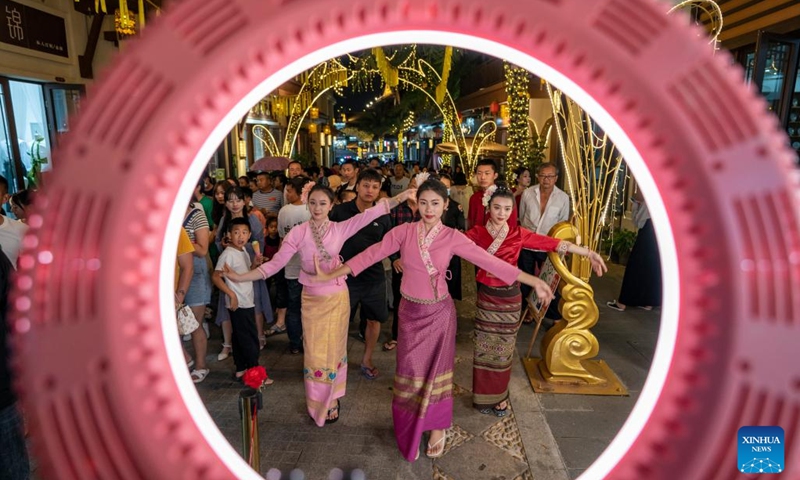The ‘E-commerce crosstalk’ ignites frenzy on Chinese online shopping

“One, two, three, post the product links!” “Please press the button and give us a thumb-up” “exactly!” the “vibe group,” which means a group of people who are pumping some life into live-streaming and coordinating with live streamers top help steer customers to buy products. The group also billed as the “E-commerce straight man/crosstalk” by Chinese users has stirred a craze in recent weeks on Chinese media platforms such as Douyin and Sina Weibo.
The “E-commerce crosstalk” is said to earn 8000 yuan ($1,450) per month depending on its wisecrack sentences. “Learning these sentences, you can easily earn over 10,000 yuan ($1,552) per month, quipped by several netizens.”
For the “E-commerce crosstalk” or people who coordinate with live streamers to help sell their merchandise, it is their specialization. However, others believe that this is confusing to consumers.
The “E-commerce crosstalk” is also known as the center control of the live stream. The work of the center control spans across the pre, mid and post-stage of the live stream, and needs to be responsible for equipment debugging, backstage operation, maintenance of the live stream order, data review and other contents.
They usually create a warming vibe to help live streamers sell products such as “I want 100k likes, could you guys help me to get them, please” or “Post product links!” These are normal psychological suggestions for customers which don’t break any of the rules of how to conduct business.
While, the “E-commerce crosstalk” group doesn’t just control the tempo, they also have another important role—they create a sense of urgency for customers, making them buy now, such as “My friends, the last one! Hurry, buy it now! ” “How many left? No, almost out of stock, only 30 left!” “Buy more today! hurry up my friends! Go to the yellow cart, find the 1st link! Great price, great quality!”
“These practices are creating an illusion of inventory constraints to mislead customers,” Fan Xiaolin, a Beijing-based lawyer told the Global Times on Wednesday.
Legally, this is infringement of the consumer’s right by means of crosstalk, bullet chat and false propaganda. And those who bring rhythm to the live stream and cause chaos in the public order of the network will be held criminally liable, he added.
Meanwhile, the law on the protection of the rights of the consumer in China also stipulates that they have the right to be informed, and that consumers have the right to know the truth about the goods they buy, use or services they receive. Operators who provide consumers with information about the quality, performance, and expiration date of goods or services should be truthful and comprehensive, and advertising or marketing should not be false or misleading.
The unrealistic atmosphere created by the “E-commerce crosstalk” can easily mislead consumers, causing them to make irrational purchases. The 2020 China Live E-commerce Industry Research Report shows that the average return rate of live e-commerce is as high as 30 percent to 50 percent, which is much higher than the traditional e-commerce return rate of 10 percent to 15 percent.
To address these concerns, Fan advised that when consumers find that for the sale of goods they encounter false advertising, violation of rights and interests, they can promptly collect evidence and go to the relevant departments to file a complaint or file a lawsuit. They can also ask the seller to pay compensation.
In September of this year, Bozhou Public Security Bureau, East China's Anhui Province, took down an illegal business criminal gang. They were buying cell phones to build a server room, and organize personnel for an e-commerce platform to provide followers of the live stream interaction. They had been posting fake reviews and a false number of sales to increase the popularity of the merchants and improve their sales.